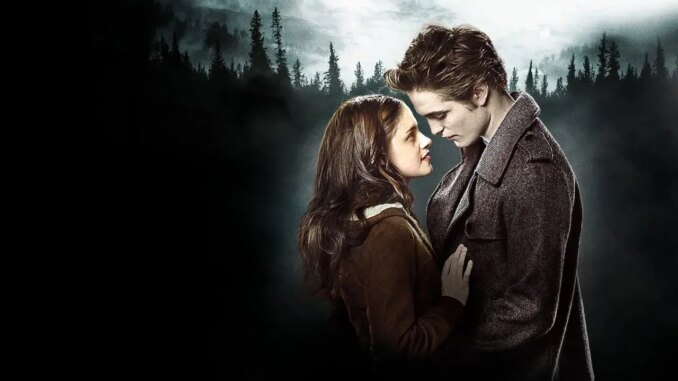
The Twilight of a New Dawn: Will a TV Series Recapture the Original Magic?
The digital ether crackles with a familiar, electric hum – a whisper of Twilight returning, not to the silver screen, but to the sprawling canvas of a television series. For a generation who came of age amidst the verdant gloom of Forks, the visceral pull of a forbidden love, and the perennial Team Edward vs. Team Jacob debate, this news isn’t merely a headline; it’s a tremor on the fault lines of their nostalgia. The collective fan reaction is a fascinating tapestry woven with threads of fervent hope, cautious optimism, and outright trepidation. The burning question, posed in countless forum posts and anxious tweets, remains: can a new series truly capture the original magic, or will it merely be a ghost of its former self?
To understand the weight of this question, one must first define the elusive “original magic” of Twilight. It wasn’t merely a tale of vampires and werewolves; it was a cultural phenomenon, a lightning rod for teenage desire and escapism. Stephenie Meyer’s novels, and their subsequent blockbuster adaptations, tapped into a primal yearning for epic, all-consuming love, a love so powerful it transcended death, species, and common sense. Bella Swan, the quintessential everygirl, found herself at the epicenter of a dangerous, dazzling world, coveted by a brooding, glittering vampire and a fiercely loyal werewolf. The magic lay in the palpable yearning, the intoxicating melodrama, the slow-burn intensity, and the atmospheric Pacific Northwest setting that felt both isolating and profoundly romantic. It was the feeling of reading under the covers with a flashlight, of whispered secrets in darkened cinemas, of identifying with a love so potent it felt, for a time, utterly real.
On one side of the digital fence stand the hopefuls, brandishing their desires for a richer, more expansive narrative. A television series offers the luxury of time, an opportunity to delve deeper into the lore of the Volturi, to flesh out the backstories of the Cullen coven, or to explore the intricate political dynamics of the Quileute tribe beyond Jacob’s personal drama. They envision a series that can correct the pacing issues of the movies, allowing moments of quiet intensity to breathe, and giving supporting characters the development they deserved. Imagine extended explorations of Rosalie’s tragic past, Carlisle’s centuries-long compassion, or the complex history of the vampire world that the films could only skim. For these fans, a TV series isn’t about replicating the past, but about perfecting it, leveraging modern storytelling techniques and potentially superior visual effects to enhance the narrative’s inherent strengths.
Conversely, a vocal contingent of the fandom recoils with an almost protective instinct. For them, the magic is inextricably linked to the faces and voices of Kristen Stewart, Robert Pattinson, and Taylor Lautner. Their performances, for better or worse, became the definitive embodiment of Bella, Edward, and Jacob, etching themselves into the collective consciousness. The thought of new actors stepping into these iconic roles feels akin to sacrilege, a direct challenge to their sepia-toned nostalgia. Furthermore, they fear the dilution of the source material. What if a longer format, instead of deepening the story, merely stretches it thin, losing the concentrated emotional punch of the books and films? There’s a tangible anxiety that a modern adaptation might attempt to “fix” what wasn’t broken, perhaps stripping away the earnest, often melodramatic charm that was an integral part of Twilight‘s appeal, in favor of a more cynical or sophisticated tone. The very elements that made it unique – its earnestness, its fantastical logic, its unapologetic focus on romantic angst – might be smoothed over in an attempt to appeal to a broader, perhaps less forgiving audience.
The true test of whether a Twilight TV series can capture its original magic will hinge on several critical elements. Firstly, casting is paramount. It’s not just about finding talented actors, but about finding a trio who can ignite that impalpable spark, that undeniable chemistry that made audiences believe in a human falling for a creature of the night. Secondly, tone and atmosphere are crucial. Can a new team recreate the pervasive sense of misty enchantment, the verdant gloom of Forks that felt both isolating and intensely romantic? The visual language of the original films, with its desaturated colors and moody lighting, was as much a character as any human or vampire. Finally, and perhaps most importantly, the series must embrace, rather than shy away from, the heart of its melodrama. Twilight wasn’t subtle; it was operatic, high-stakes, and deeply emotional. To sanitize it, to make it too “cool” or too self-aware, would be to drain it of its very lifeblood. The magic wasn’t in its realism, but in its ability to transport viewers to a heightened reality where love was literally immortal.
As the possibility of a Twilight TV series looms, fans find themselves caught between the longing for a beloved world revisited and the fear of a cherished memory sullied. The original magic wasn’t just about sparkling skin or rapid-fire baseball; it was about the thrill of first love, the agony of choice, and the irresistible pull of the forbidden. Whether a new series can bottle that elusive essence, or if it will merely be a polished, yet hollow, imitation, remains to be seen. Perhaps it won’t be the same magic, but a different kind, forged for a new generation. Yet, for the original fans, the question will always linger: will this new dawn truly shine as bright as the one they remember?
